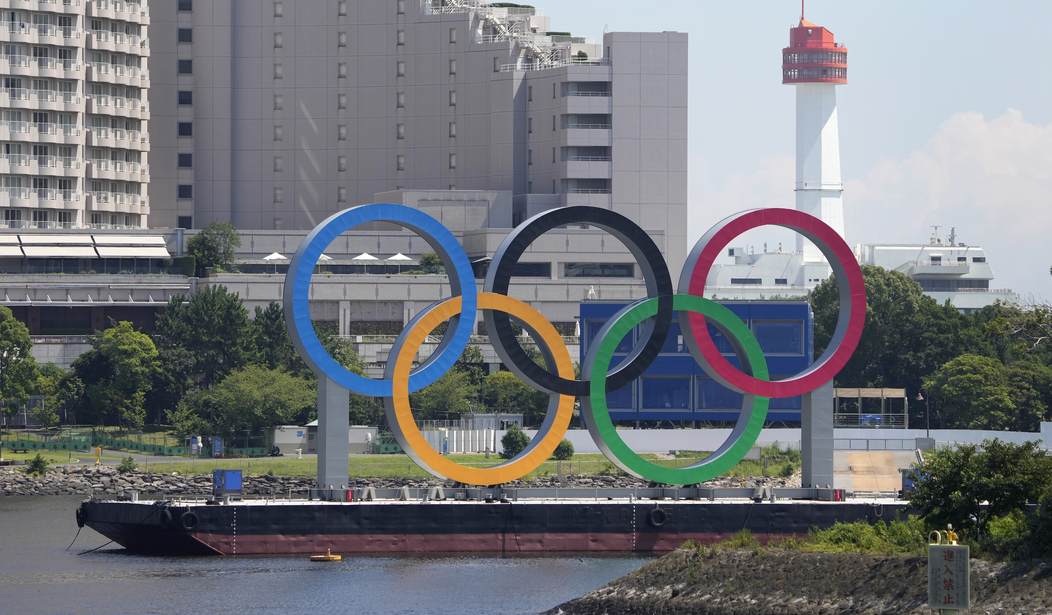Who knew that there would be a surge in COVID-19 cases in Tokyo during the Summer Olympics? Yeah, almost everyone. Tokyo has been under a state of emergency and the first cases of COVID-19 were reported in the Olympic village just days before the competition began. The question of a last-minute cancelation surfaced.
The Japanese Prime Minister was determined that the 2020 Olympics be held in the summer of 2021. The pandemic is still with us, though, and constant adjustments had to be made. A push for COVID-19 vaccines took place just days before the event began. Japan declared a do not travel advisory weeks before the games opened. Decisions went back and forth. Spectators were going to be allowed but then there were banned from the events. Families and friends of Olympic athletes are left behind at home to watch the games like the rest of us – either on television or livestreamed. It’s weird to see so many empty seats in Olympic venues and so little crowd noise in the background. They decided to pipe in the sounds of crowd reactions from past Olympics so that the quiet wasn’t so distracting. Prime Minister Yosihide Suga insisted that the Olympics be held this year after being canceled last year due to the pandemic.
Now, however, with coronavirus cases at new highs in Japan, four more areas of Japan have been added to the state of emergency issued in mid-July. The state of emergency has been extended until Aug. 31. Japan is looking at increasing restrictions but the problem is that some measures, like bans on alcohol and bars with shorter hours, are being ignored. The Japanese public is tired of restrictions during the pandemic. Sound familiar? People will only take severe restrictions on personal behavior and mobility for so long before everyone begins to say it’s enough, whether it’s in the U.S. or abroad. Suga knows this and is acknowledging the increase in cases but announcing a milder version of emergency measures.
“We need to tackle the situation as we now have a stronger sense of urgency,” Prime Minister Yosihide Suga told reporters, referring to Tokyo’s new record exceeding 5,000 cases for the first time. “The infections are expanding at the pace we have never experienced before.”
Suga, who has been criticized for insisting on hosting the Olympics despite the coronavirus spreading, says there is no evidence linking the surge in cases to the July 23-Aug. 8 Games. He urged people to firmly stick to the emergency requests and stay home despite the summer vacation.
Alarmed by the pace of the spread, some experts have called for a current state of emergency in Tokyo and five other areas to be expanded nationwide.
Instead, Suga on Thursday announced a milder version of the emergency measures in eight prefectures, including Fukushima in the east and Kumamoto in the south, expanding the areas to 13 prefectures. The less-stringent measures allow prefectural heads to target specific towns but cannot order business closures.
Suga also pledged to “prevent the further spread of the virus by firmly carrying out vaccinations.”
Testing is insufficient in Japan yet it has managed to keep its cases and deaths lower than much of the world. Tokyo’s positivity rate is at 20% which indicates widespread infections. In order to save hospital beds, Suga now advises people with mild symptoms to stay home and out of hospitals. There is a tenfold increase in patients with mild symptoms from a month ago. More than 14,000 patients are isolating at home with mild symptoms and 8,400 others are waiting for hospital beds or beds in special hotels.
Olympic officials reported an additional 31 new cases linked to the Games Thursday. A sixth member of the Greek artistic swimming team tested positive and forced the squad to withdraw from the completion on Tuesday. The Greek team’s outbreak is being treated as a cluster. All of its members have tested positive and are isolating in hotel rooms while the other six members returned home. The total number of people linked to the Olympics who have tested positive since the start of July is 353. Several athletes are included in that number.
Mostly, besides the ban on alcohol and limiting operating hours of bars and restaurants, the advice issued from Suga is for everyone to just stay home. He hopes to ease the strain on Japan’s medical system.
Traditional primetime viewership is tanking. The bright spot is that many people are watching via digital platforms and streaming.
NBC’s TV audience for the summer Olympics is down a whopping 45% from the Rio games in 2016. Viewership in prime-time is even worse, down 51%.
The good news for NBC is that its prime-time coverage on TV is still averaging roughly 13.5 million viewers, bringing in a bigger audience than most of its rivals’ broadcasts do right now. NBC’s total audience delivery — which compiles viewership across broadcast TV, cable and streaming — gives that prime-time number a little boost, averaging 16.8 million viewers, according to the network.
The other bright spot for NBC is that the Tokyo Games have found an audience via digital platforms and streaming.
The network boasted that Peacock, its streaming service, has notched strong viewership for the games. On Tuesday, NBC said that viewers had streamed 3 billion minutes of Olympics coverage across NBCOlympics.com, the NBC Sports app and its Peacock streaming services. Moreover, NBC said that number is “pacing to surpass Rio Olympics total in next few days.”
The Olympics are going to have to adjust to a new way of watching special events going forward. A large part of the population doesn’t turn into legacy broadcast network coverage. People watch at their own convenience and often that is online. And, many people are turned off if they think a sporting event is going to be overtaken by the politics of the athletes.








Join the conversation as a VIP Member